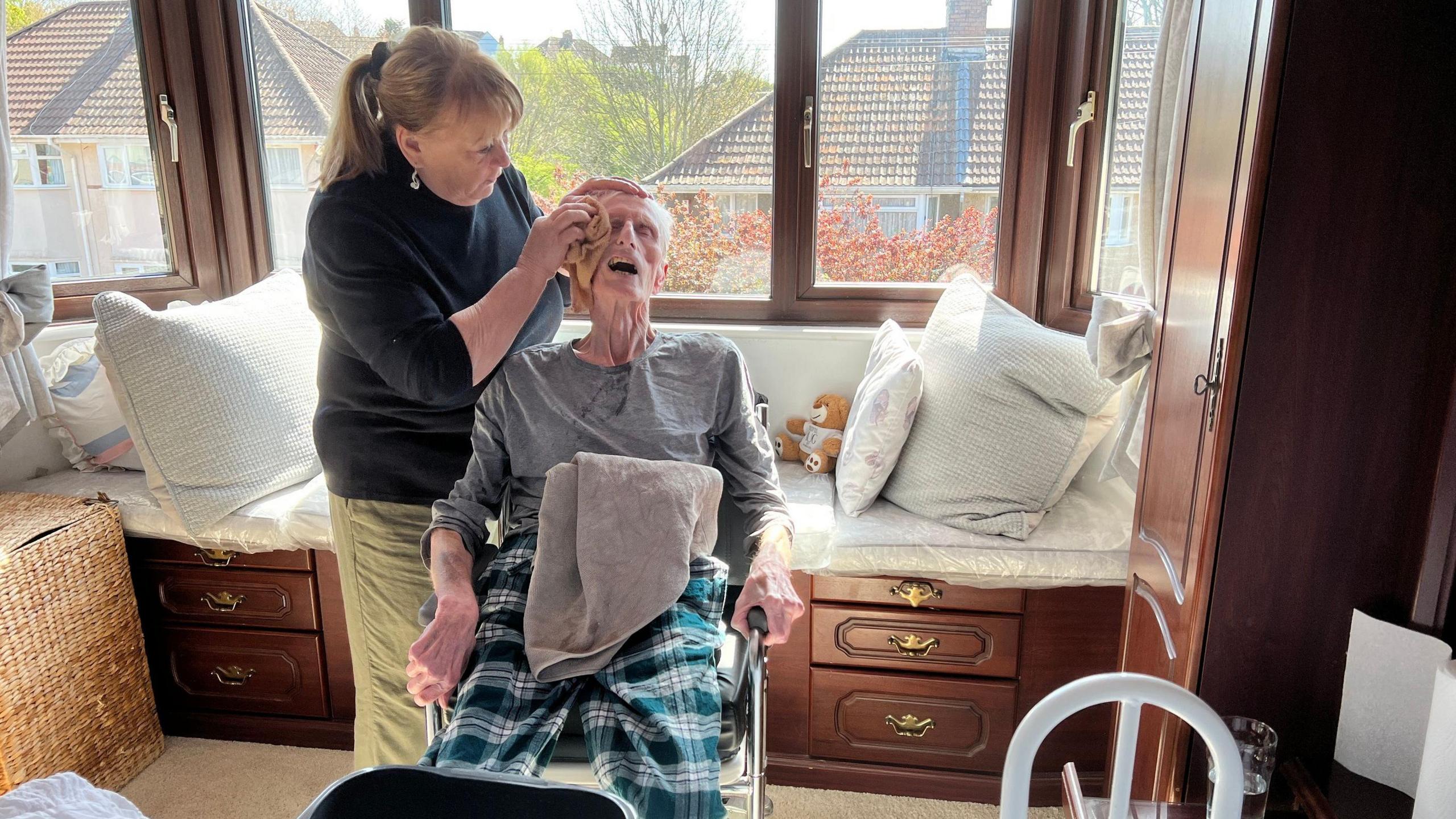Specialist ataxia nurse helps South West patients
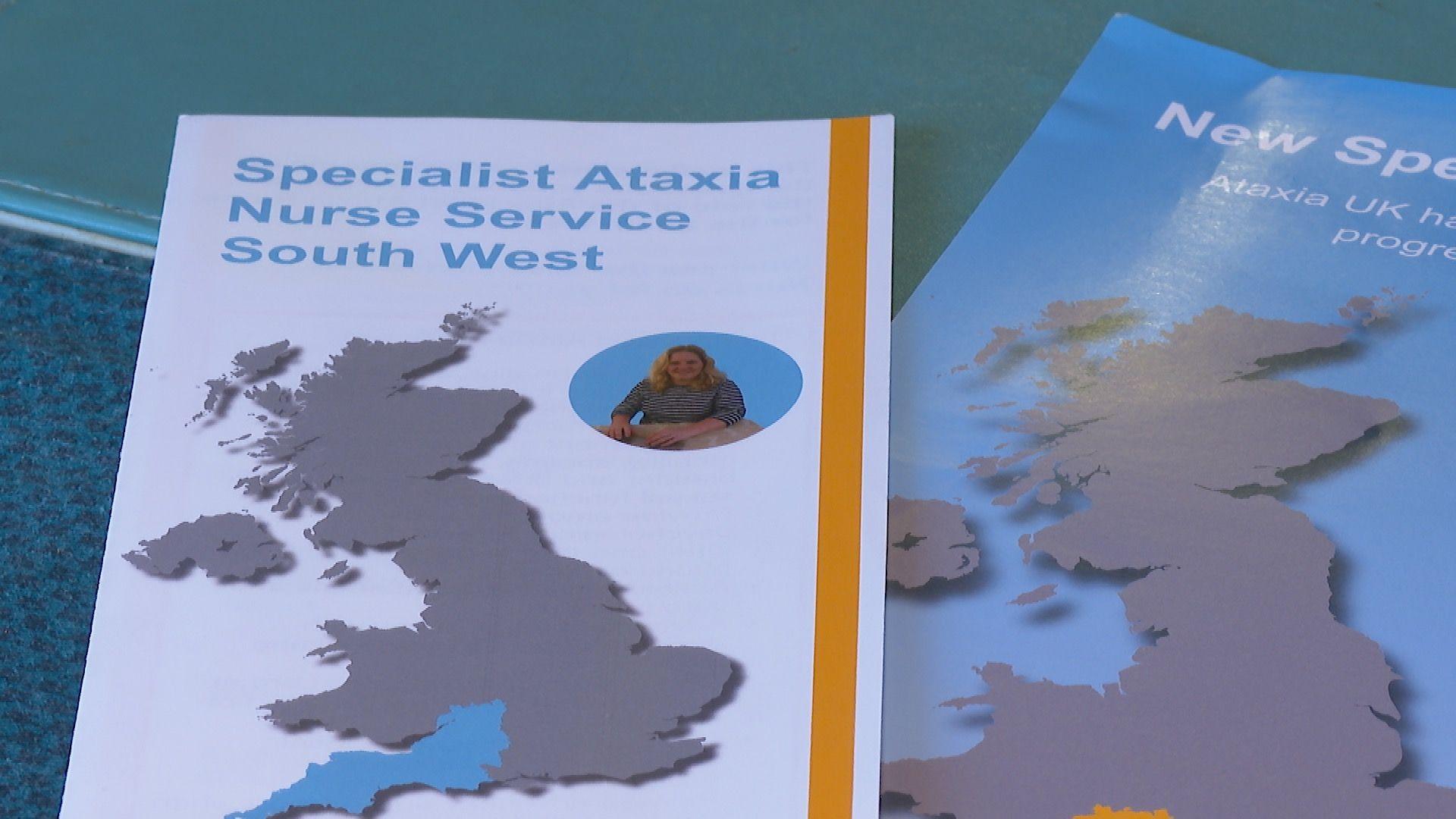
The new nurse provided by Ataxia UK covers much of the south-west of England, from Cornwall to Gloucestershire
- Published
A specialist nurse to support patients with the neurological condition ataxia has started work in the South West.
It is a rare disorder that mainly affects balance and coordination.
Charity Ataxia UK said the service would be provided over video link or phone, and although the nurse could not treat patients, they could signpost people to additional services such as physiotherapy and speech therapy that might improve quality of life.
It added that said it hoped trialling its first service like this in England would provide a supportive link between local NHS providers and ataxia specialists based in Oxford, Sheffield and London.
The pilot project covers patients in the NHS-defined South West region of England, including Cornwall, Devon, Dorset, Somerset, plus parts of Hampshire, Wiltshire and Gloucestershire.
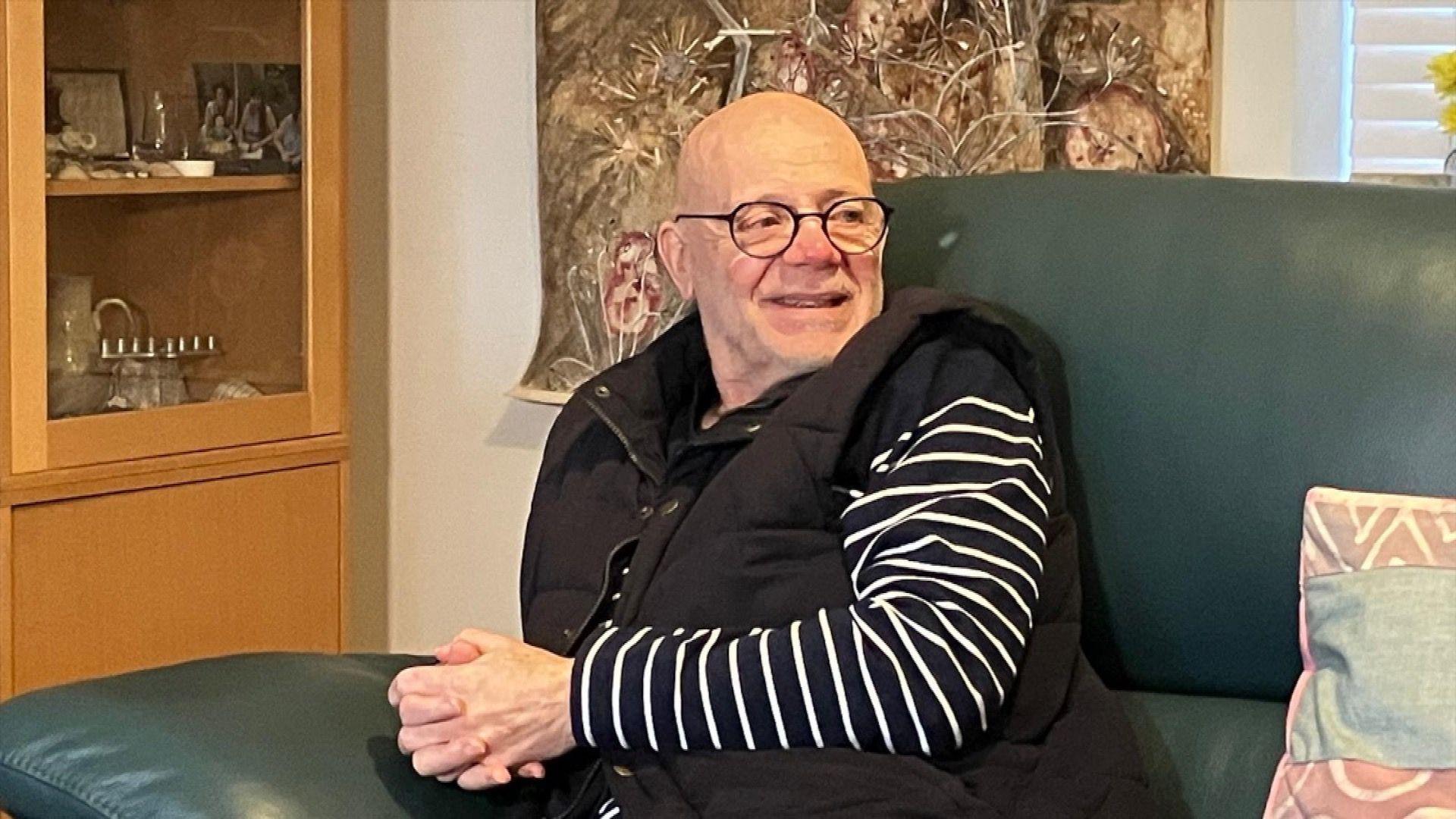
Malcolm Race thinks he has had ataxia for 20 years, but was only diagnosed 10 years ago
Ataxia is a neurological condition that affects the nervous system.
There are different types of the disorder, and it can be caused by a number of factors, including: genetics, head injuries, or as a symptom of other conditions such multiple sclerosis (MS) or Parkinson's disease.
For artist Malcolm Race, from Totnes, Devon, it means his coordination, balance and his speech are impacted.
In his case, his body reacted to gluten - creating antibodies that mistakenly damaged the cerebellum - the part of the brain that controls balance.
He said he first noticed something was wrong when he was working in an art college and kept falling over.
When he was first diagnosed by a specialist in Sheffield, he said it was "devastating".
He said: "I knew there was a rocky road in front.
"I remember sitting reading the posters on the wall [of the clinic] and I remember thinking: 'What on earth is that?' It ended up being my condition."
Malcolm said he had become slower but still created his art; however, walking was exhausting.
"When I walk around I have to think before I take every single footstep. That's what makes me tired," he said.
Rare condition
Ataxia UK estimates 10,000 people in the UK have the progressive form of the rare degenerative brain disease.
The charity said there was not a dedicated ataxia specialist in the South West, but staff were aware of about 500 patients locally.
Nurse Camilla Notley said she hoped to bridge the gap between specialist NHS centres, where patients were often diagnosed, and local neurology teams.
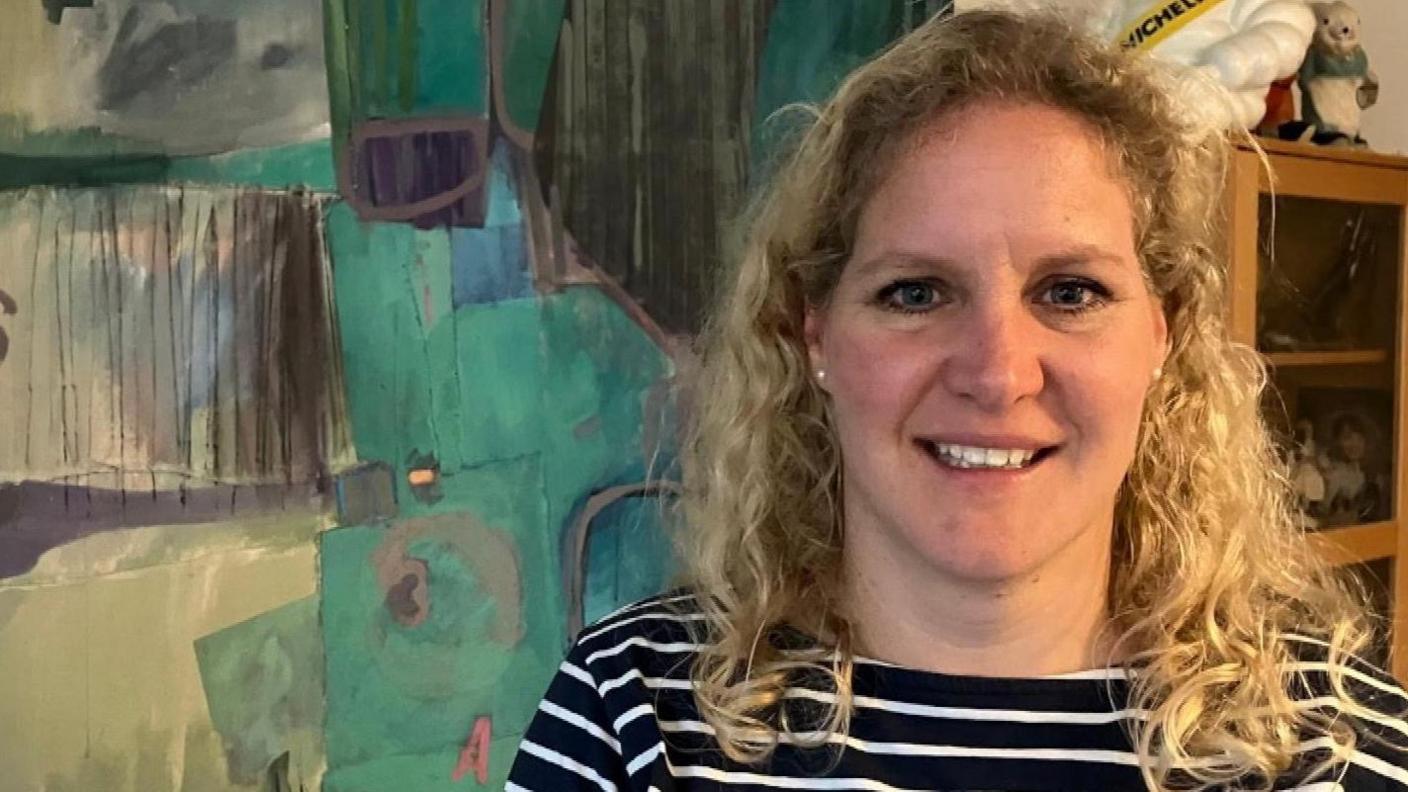
Camilla Notley is Ataxia UK's specialist nurse, who is helping patients over the phone and via video link
She said: "My role is about connecting with patients in the South West with Ataxia and all the [hospital] trusts I'm involved with, trying to create opportunity.
"A lot of these patients will have had a lifetime battle, with trying to ensure they can access the right service for whatever they need at that time.
"If I can bridge that gap and make their lives easier, then I've done the job that I'm here to do."
Camilla added: "Unless you are asked about it, you don't realise that [a symptom] is being caused by your condition. So you don't think to ask for help, you just cope, and your quality of life could be better.
"You just need to know where to ask for help."
Andrea Nemeth, a professor of neurogenetics and hospital consultant at Oxford University Hospitals, is one of the specialists patients from the South West might see to get a diagnosis.
She said: "Medical input is relatively limited to the diagnostic phase, so seeing a neurologist and, or a geneticist; but actually the long-term management is much better addressed by allied health professionals.
"Patients and sometimes medical staff don't know that that is the case and that is where the ataxia nurse Camilla can signpost patients to all of those different services which are absolutely vital.
"Just because there aren't curative treatments, doesn't mean there aren't treatments that are really valuable for people."
Those services could be anything from occupational therapists to palliative care, to respiratory services and dietitians.
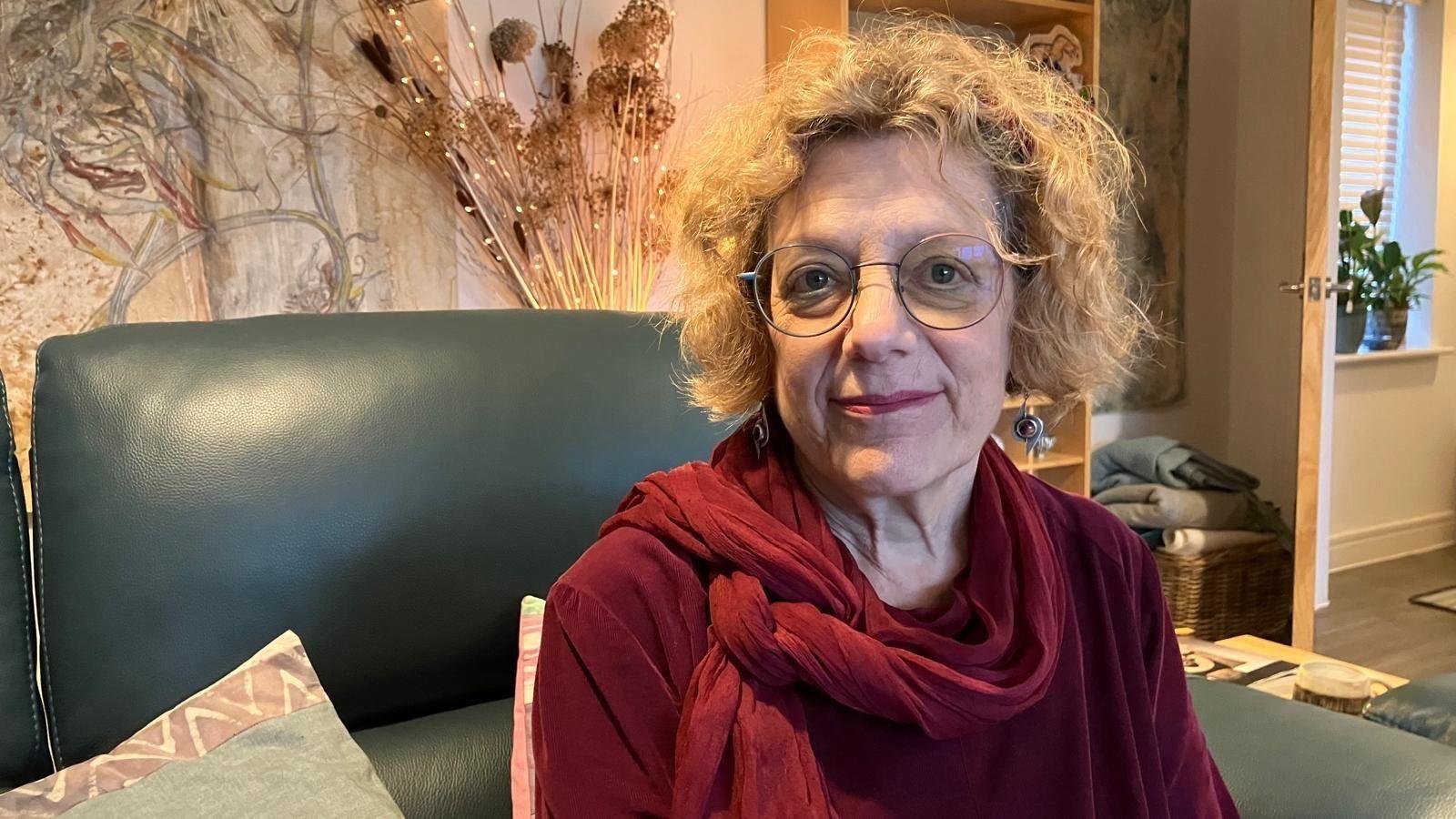
Mandy Race said her husband's condition was complex and an isolating experience before they had help
Malcolm Race said he had been finding trips to appointments in Sheffield hard and was now also being treated by a local neurology team.
His wife Mandy said Camilla's help had so far been "lifesaving" for the both of them because they had felt very alone and she had since helped them contact local services.
The charity got money for the service from the National Lottery Community Fund.
If successful, and more funding could be sourced, Ataxia UK it may expand the service in the country.
Follow BBC Cornwall on X, external, Facebook, external and Instagram, external. Follow BBC Devon on X, external, Facebook, external and Instagram, external. Send your story ideas to spotlight@bbc.co.uk, external.
Links
- Published23 October

- Published10 April
